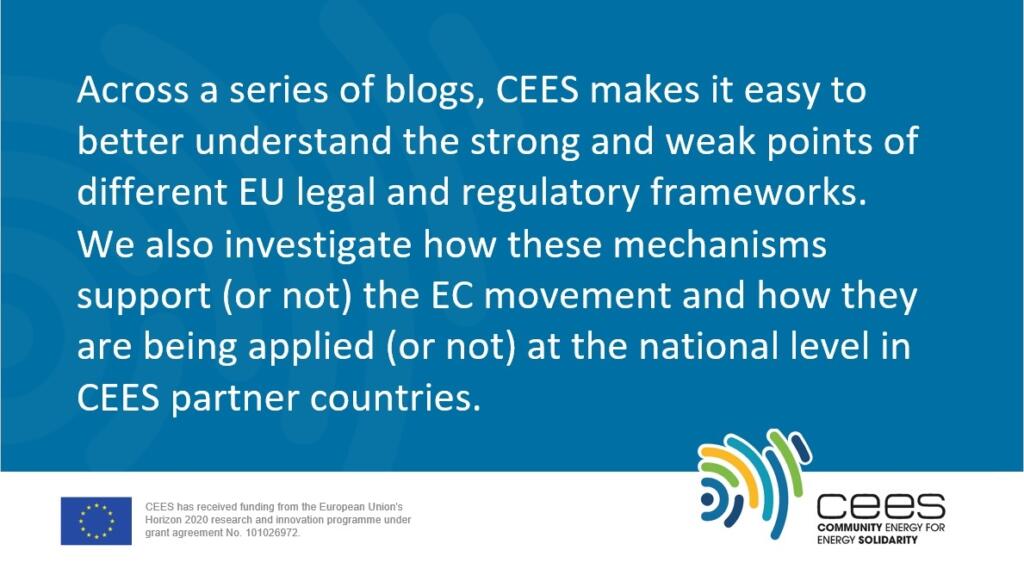The potential for energy communities (ECs) to play a larger role in more distributed and more just clean energy systems is gaining attention. But does current regulation actively support energy solidarity?
The EU Green Deal and the current energy crisis are spurring calls for greater energy independence and measures to help individual households deal with spiking energy prices. Community Energy for Energy Solidarity (CEES) aims to explore how ECs can specifically lift vulnerable households out of energy poverty.

As both EU directives and national institutional and regulatory environments influence how easy or challenging it is to implement ECs, CEES carried out extensive research to better understand the contexts.
Anyone operating or considering launching an EC will find CEES’ Deliverable 4.1 valuable for its overview of existing legislation and policy initiatives on energy poverty and ECs, at the EU and national levels for CEES pilot countries: Croatia, France, Portugal and the UK.
Section 4 offers an overview of the European legal framework on ECs and energy poverty, from their first mentions in EU law to current negotiations in the framework of the Fit for 55 Package and REPowerEU, both of which call for stronger alignment with the principles of a just, clean energy transition.
Section 5 focuses on the implementation of provisions on ECs and energy poverty initiatives in the Clean Energy Package at the national level for CEES pilot countries.*
CEES analysis finds that while progress is being made at the European level, none of the EU Member States has reached a state of maturity in terms of setting up regulatory or legal frameworks that link ECs and energy poverty in an empowering way. At all levels, extra efforts are needed to eliminate barriers between social programmes and energy poverty. This is perhaps the biggest challenge to effectively achieve a just energy future.
As such, both sections end with recommendations for EU and national policy makers. In addition to describing the contexts in which CEES partners have rolled out energy solidarity mechanisms and will integrate new activities through the project, this document will help them advocate for change where needed.
* As two CEES project partners, Repowering London and ALIenergy, are situated in the UK and thus no longer obliged to transpose EU legislation into national law, no formal analysis of their legal framework was carried out.